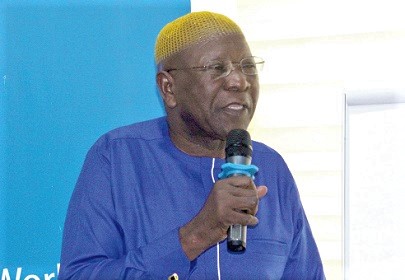
Dialogue on investment, protection of health sector workers underway
A regional policy dialogue on investment in and protection of health and care workers in Africa is underway in Accra.
The three-day event is being attended by 75 participants from 26 African countries, who will share lessons and policy experiences across member states and regional economic communities on health workforce investment.
They will also identify opportunities, key principles and considerations to stimulate domestic, regional and international investment to address health workforce shortage.
The meeting is being organised by the World Health Organisation (WHO), in collaboration with the International Labour Organisation (ILO) and sub-regional communities.
Capacity building
The WHO Representative to Ghana, Dr Francis Kasolo, said Africa had, over the past decade, made significant strides in the training of health professionals, both in terms of quantity and quality.
He said available data showed that in 2005 there were only 168 medical schools producing about 6,000 new doctors annually across the 47 member states of the WHO Africa Region.
In 2020, the region recorded an increase of more than 400 medical schools producing over 26, 000 doctors per year, with the training of nurses and midwives increasing from 26,000 in 2005 to at least 60,000 currently, he said.
He said overall there were now more than 4,000 health training institutions producing over 150,000 health workers yearly, with the private sector contributing approximately 40 per cent of the number annually.
“In absolute numbers, the region increased the number of health workers from 1.8 million in 2013 to 2.8 million in 2020, an overall improvement of 52 per cent.
"This has reflected in improved health outcomes such as a decrease in under-five and maternal mortality rate, improved access to health services and longer life expectancy," Dr Kasolo said.
![]()
The WHO Representative, however, said despite improvement in quality and increased health workforce numbers, there still existed challenges such as adequacy, equity and quality of service.
He said projections by WHO indicated that the Africa Region would still record a shortage of health workforce in 2030.
"The economic shock imposed by COVID-19 has also constrained the ability of both governments and the private sector to mobilise resources and expand the budget and financial space to recruit newly trained health workers,” Dr Kasolo said.
According to him, there was ample evidence to show that investing in health workforce would expand universal health coverage, strengthen health security and equity, as well as youth and women’s economic empowerment.
In line with that, he said, countries had been asked to prioritise health in their public budgets.
Invest more
A Deputy Minister of Health, Alhaji Mahama Asei Seini, acknowledged the importance of increased investment in the health sector, adding that the regional dialogue was timely, as the discussions would feed into a technical workshop and a labour market analysis programme scheduled for the weekend.
“There can be no better time to invest in health workforce. Investment in health workforce will protect vulnerable populations from the shocks of current crises and also improve health access,” he said.
